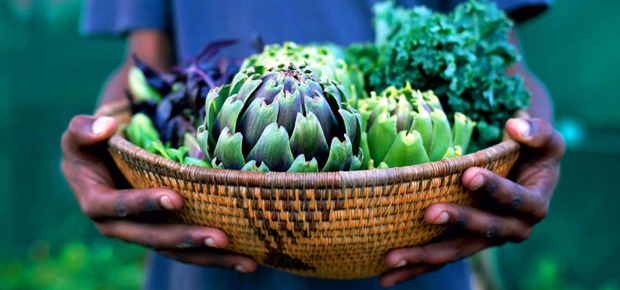
The idea of farming in the city might seem absurd to some people, but this global movement is far from a new trend. It has emerged for a number of different reasons throughout history – and in today’s geopolitical climates, it has its own significance. Future cities will have to innovate and adapt to the many environmental challenges we face. Due to high and increasing urbanisation, with more than 50% of the planet’s people already living in cities, urban areas have a key role tol play in ensuring our future sustainability. Globalisation of food production, and of trade and culture, has seen dramatic changes to our food systems, farming practices and diets.
Engaging in urban agriculture – which highlights uncertainties about food availability, affordability and quality – may be one of the most important acts you can do today.The Cuban success story
Cuba offers well-known examples of successful government-led urban-agriculture initiatives.
Although a major success story, Cuba’s was not an easy transition.
After the end of the Cold War, Russian allies were cut off from receiving resources. Cuba was hit hard, and food scarcity became a real threat due to the lack of petrochemical inputs (used in conventional, industrial agriculture as fertiliser). The socialist republic responded creatively to this emergency, mobilising and supporting organic urban agriculture and using every inch of space for food production. The use of public spaces revived urban communities and livelihoods, and maintained food and nutritional security in sanctions-hit Cuba.What about SA cities?
Here, subsistence agriculture is in decline, and farming is highly industrialised, commercialised and centralised.
With our rapid urbanisation, there is a movement away from farming and traditional foods. But traditional crops are a big part of our food security, as most of them grow wild and are adapted to the dry conditions of southern Africa.
With the movement towards processed, fast foods, the knowledge around what we grow and eat is being eroded.
We need to find ways to revive interest not only in farming, but in the types of farming (traditional and agro-ecological farming practices) and what is being farmed (supporting agro-biodiversity).
We need to celebrate and conserve the ecological and cultural heritage of the country, and promote dietary diversity and nutritional security.
It is therefore vital to focus on food sovereignty, and urban agriculture is an effective strategy towards achieving this.
Food sovereignty is the right of people to healthy and culturally appropriate foods produced through ecologically sound and sustainable methods.
Creating your own food garden
Urban agriculture can take many forms. In the inner city, the integration of architecture and urban greening is an inspiration for our future cities.
If you are living in the inner city, you will probably focus on container gardens. Your main options are rooftop, vertical or window gardens.
There is an abundance of containers around the city that could be used for growing little veggies. You need a container at least 30cm deep, such as wooden or plastic palettes, the backs of old TVs or computers – there are lots of those around – tyres or wooden boxes.
You will need to line your containers to ensure the soil remains in them. This is crucial when working on rooftops, as we need to take care that the roots do not damage the roof and that soil does not block drains. I would also suggest you raise your container so that it is not sitting directly on the roof.
If you want to use tyres, do not grow root vegetables in them – the tyres leach chemicals that are not healthy for consumption.
You should also cover your rooftop gardens with shade cloth because a roof is a very harsh environment (with lots of sun, wind and heat). This should also hopefully protect the plants from airborne pollutants.
For vertical or window gardening, use any of your old containers or wooden palettes and get creative. Hang or place them wherever they can get enough sun. Growing food can help reduce your waste by making old containers into beautiful planters.
You will need to maintain high-quality soil. I would recommend mulching and having a worm bin (where you can compost your vegetable and fruit scraps in exchange for high-quality compost).
Back yards
If you have a back yard, then make it a productive space. Do not pave over your soil! By paving, you compress the soil and negate the thousands of years the earth has taken to make fertile soil.
Again, its important to think multifunctionally.
Remember, if you feed the soil, the soil will feed you. This is an important lesson about farming because nutrient-rich and healthy soil is the base for healthy crops. Intercrop with a number of known medicinal plants such as:
. uMhlonyane/Artemisia afra/wilde als . Lion’s Ear/Leonotis leonurus/wild dagga
. Tulbagha violacea/wild garlic/intelezi These can be used for self-medication, to support healthy gardens and to make natural insecticides.When you are growing food, ensure the plants you are growing are compatible with each other. Look for companion plants. This depends on which plants you want to grow. Some good combinations include: . Maize, pumpkin (any type, including butternut) and beans. This mix is known as the three sisters; . Beetroot, onion, carrots and lettuce; and . Tomatoes, basil, parsley and garlic.When looking for seeds, I recommend looking out for heirloom or heritage seed. These seeds promote agro-biodiversity and more resilient and adaptable food systems. You may also choose to save seeds from your vegetables simply by drying them out before planting. Urban agriculture allows you to reduce what you spend on your food bill and to know where your meals come from.Commercial urban agricultureUrban agriculture has multiple enterprise opportunities. Currently, many metros throughout the country are promoting urban agriculture as an economic-development and food-security initiative. This may be in the form of cooperatives, or other small, medium and micro enterprises. Get in touch with your ward councillor and the food-resilience official in your ward to ask about how to apply for the benefits from these programmes.There are also many nongovernmental organisations that can support community-led initiatives by providing containers, soil, seeds, seedlings and technical advice.Imagining sustainable citiesThe urban-agriculture movement is deeply rooted in the vision of food sovereignty. It’s about how and where the food is produced, and also how it is distributed and accessed within a city. In striving for more sustainable food systems, quality food must be affordable, available and accessible, and should support healthy ecosystems and societies.In Joburg, most people access fresh food from informal traders, so it is vital that we stimulate markets and celebrate informal traders for their role in providing access to fresh food. We are able to drastically transform the cityscape through creating cities that are multifunctional, productive and offer solutions to our increasing uncertainties. We, as urban residents and consumers, can alter the state of our food system and create a new one that is healthier, supports the diversity of agriculture and diets, and bridges the gap between our rural and urban landscapes.




 Publications
Publications
 Partners
Partners








